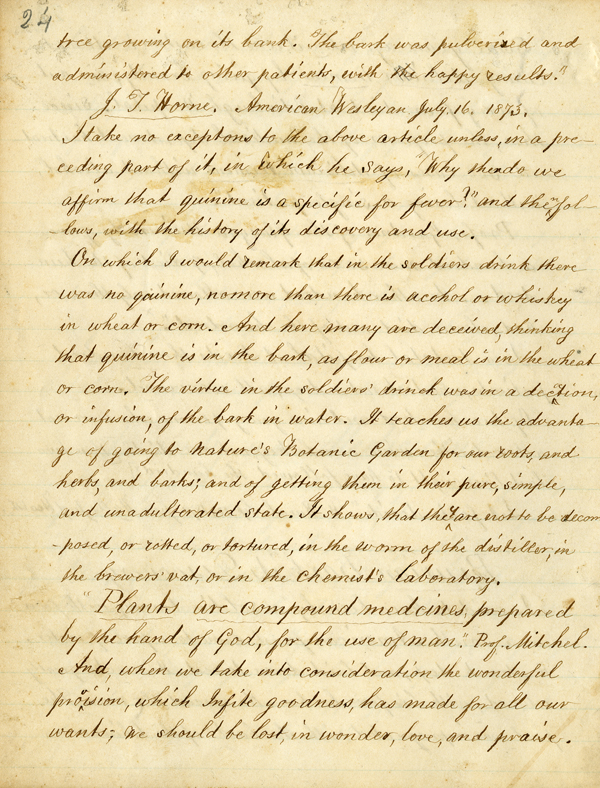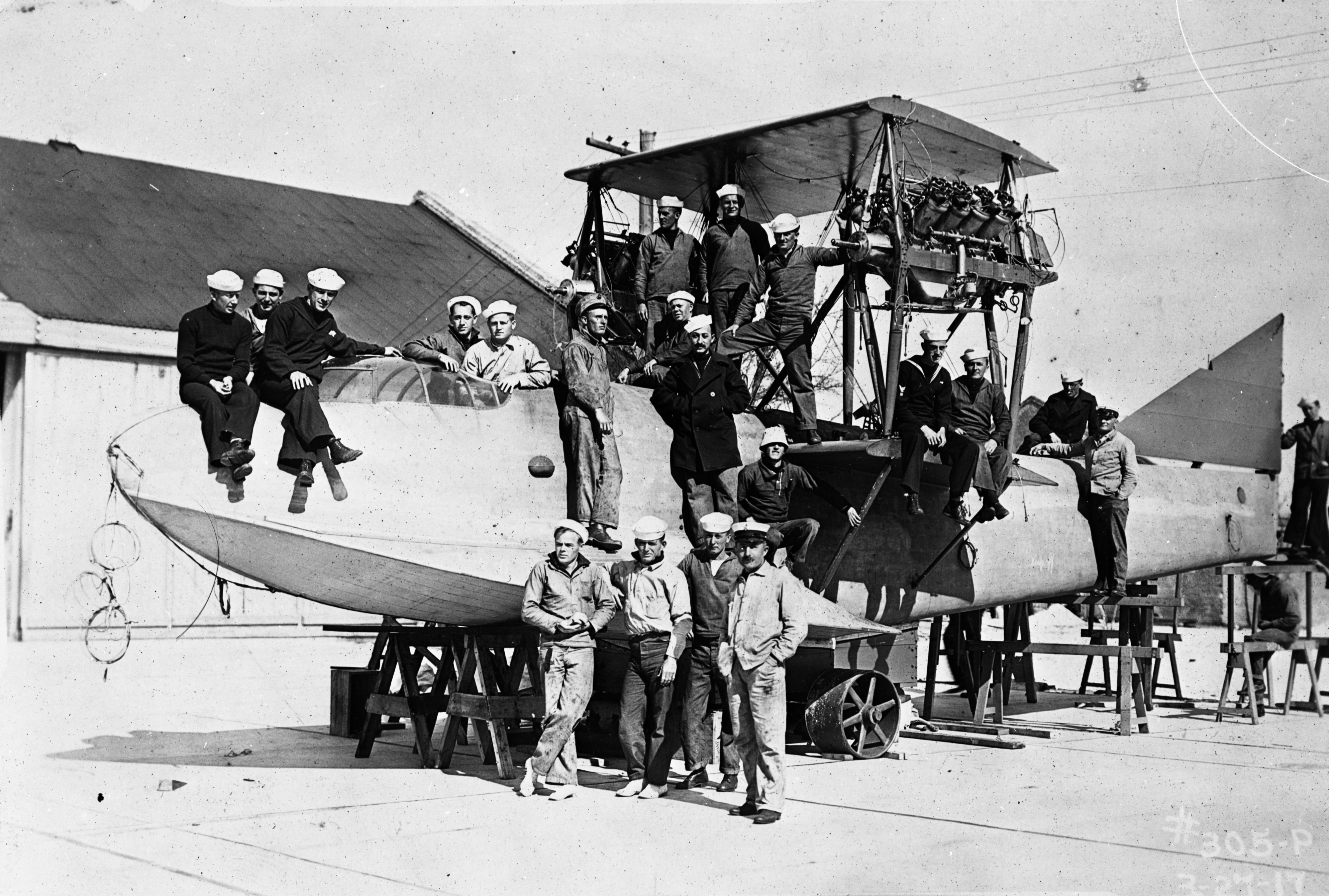"Ode to Health;
Date: 1896-1903
Series: N2009-5 - Civil War veterans medical journal, 1896-1903.
Civil War Veterans Medical Journal.
(Page 24 of 24)
Transcript
[page 24]
tree growing on its bank. The bark was pulverised and administered to other
patients, with the happy results."
J.T. Horne. American Wesleyan. July 16, 1873.
I take no exceptions to the above article unless, in a pre-
ceding part of it, in which he says, "Why then do we
affirmt hat quinine is a specific for fever?" and then fol-
lows, with theh istory of its discovery and use.
On which I would remakr that in the soldiers drink there
was no quinine, no more than there is acohol or whiskey
in wheat or corn. And here many are deceived, thinking
that quinine isin the bark, as flour or meal is in the wheat
or corn. The virtue in the soldiers' dirnk was in a decation
or infusion, of the bark in water. It teachers us the advanta-
ge of going to nature's Botanic Garden for our roots, and
herbs, and barks; and of getting them in hteir pure, simple,
and unadulterated state. It shows, that they are not to be decomposed, or rotted,
or tortured, in the worm of the distiller, in the brewers vat, or in the chemist's
laboratory.
"Plants are compund medicines, prepared
by the hand of God, for the use of man." Prof. Mitchel.
And when we take into consideration the wonderful
provision, which Infite goodness, has made for all our
wants; we should be lost, in wonder, love, and praise.

 Listen: The Blues Program
Listen: The Blues Program
